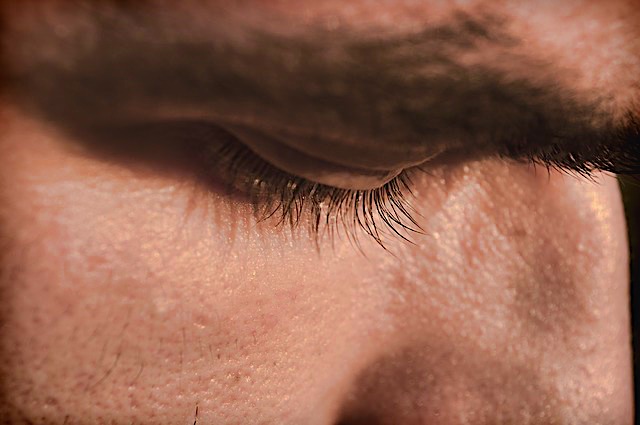Getting over regrets can be painful, but peace of mind is the reward

Getting over regrets is one of those tasks we singles know we should do, but like weeding old clothes out of a closet, we promise ourselves, "I'll get to it later."
Regrets are painful to deal with. In some cases, they're a reminder of how we failed, and that's always upsetting to admit. Who wants to relive past hurts? Apparently many of us do, because we keep replaying them over and over!
Until we recognize that this brooding is self-destructive, we won't deal with it. Here are some steps that will, I hope, gently lead you into releasing past guilt.
Getting over regrets: When it was your fault
Getting over regrets requires that you accept one important truth: You did the best you could at the time.
One
of the reasons we keep punishing ourselves over our past is that we
believe we somehow could have done something differently or done
something more so the situation would have turned out better.

This second-guessing seems necessary until you realize that you did the best you could at the time. You're not a prophet. You can't predict the future. You made decisions based on the information you had, your past experience, and consideration for other people. But despite your best efforts, things still went wrong.
The old saying "hindsight is 20/20" is true. Now, looking back, you have a better understanding of the situation. You can see how you should have handled it. But at the time, you worked with what you had. Your knowledge and maturity may have been inadequate.
Nobody deals perfectly with every situation in life. If you expect to, you're setting yourself up for self-condemnation. Despite your best effort, things will not always work out the way you want.
Alcoholics Anonymous, in its 12 Steps Toward Recovery, has good advice in Step 9 about people you have hurt in your past:
Make direct amends to such people wherever possible, except when to do so would injure them or others.
Peace of mind requires that we apologize for the hurt we caused. That does not always balance the scales of justice, but it keeps us from being one of those people without a conscience, who leave pain and brokenness in their wake their entire life.
Sometimes the person we hurt has died or we cannot find them. Making an honest effort to locate them is all you can do. Then it's time to let it go.
It's out of control!
How sweet it would be to get your own way all the time. But that kind of control freak thinking only leads to frustration. Even as little babies, we discover the world doesn't obey our commands, and other people sure don't either.

What does that mean? Often circumstances are out of our control and no
matter how much we struggle, we're not going to be in charge. That's a
scary thought, but a fact of life. Bad stuff happens to good people
through no fault of their own.
Elsewhere on this site you may
have read I've had cancer twice. I wish that had not happened, but both
times it was out of my control. I've always taken decent responsibility
for my health. Sometimes cancer just happens and we don't know why.
On the other hand, when I see people smoking cigarettes, I think, "She'll live to regret that." The link between smoking and cancer is so strong, a person is a real idiot to defy it. Take unnecessary risks, and you may suffer for it. Self-destructive behavior leads to self destruction.
But it's not just disease. Many things are out of your control. Sometimes we unknowingly get mixed up with irresponsible or troubled people. By the time we figure that out, something bad has already happened. Again, we're not psychic.
In 1985, I got laid off from my job. The company was reducing its workforce. I had the lowest seniority in my department, so I was cut. I had been conscientious. I had done all the right things. But no matter how good an employee I had been, every department had to get rid of some people, and I was let go. It was out of my control.
Understanding that sometimes things are out of your control helps in getting over regrets. You can't be sorry over something that wasn't your fault. That said, some people refuse to take the blame for anything and think they're never wrong.
Step One: Live in the present

Getting over regrets demands that we stop living in the past and focus instead on the present and future.
I'm sure when you were a kid, your mother told you at some point, "If you keep picking at that scab, it's never going to heal."
That's how regrets are. They're itchy like scabs so we keep picking at them. The best way to leave them alone is to enjoy the present and plan for the future. Here's what a really wise fellow, the apostle Paul, learned about getting over regrets:
- But one thing I do: Forgetting what is behind and straining toward what is ahead, I press on toward the goal to win the prize for which God has called me heavenward in Christ Jesus.
All of us who are mature should take such a view of things. And if on some point you think differently, that too God will make clear to you. (Philippians 3:13-15)
Isn't living in the present enough to keep you busy? No, you can't always control the present either, but by being wise you can prevent a lot of trouble in your future.
Step Two: Ask God to heal you
If you're a Christian, getting over regrets takes a second step: Ask God to heal you.
Even God cannot change the past, but he can change the way you think about it. Life can be a traumatic process, a journey with many adversities. Remember, though, God loves you when you fail. He loves you even when you are selfish.
To know deep in your heart that God has forgiven you brings great comfort. God is our ultimate judge, yet he is merciful. He seeks repentance from us, a turning away from sin. When Jesus commanded us to love our neighbor, it was not a suggestion. Love goes beyond "do no harm." It encompasses treating the other person with kindness, just as we want to be treated.
Listen to this important statement from the book of Hebrews:
For I will forgive their wickedness and will remember their sins no more.(Hebrews 8:12, NIV)

If God can forget your mistakes, shouldn't you forget them too? Once God forgives them, they're no longer an issue. They're gone forever.
Getting over regrets, like most problems in life, requires a choice. We often feel we're locked in when we're really not. With God's support and guidance, you can choose the best way. Getting over regrets means you'll have to trust God to heal your disappointments, and that takes faith and time.
The good news is that if you don't have the courage now to deal with your regrets, God will, over time, prepare you to take that step toward healing.













